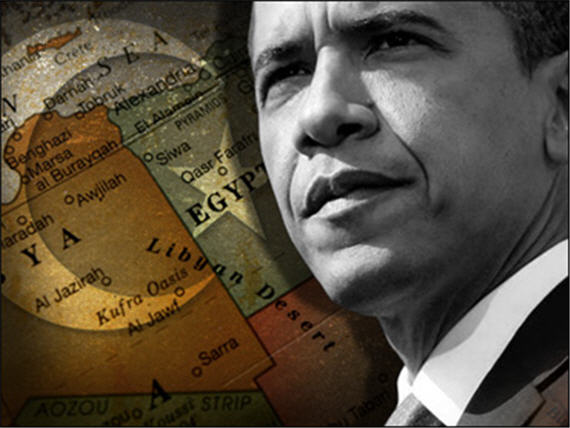America Has Options in Egypt
Andrew Bacevich argues, persuasively, that "absence of leverage does not preclude options" with respect to Egypt.
Andrew Bacevich argues, persuasively, that “absence of leverage does not preclude options” with respect to Egypt.
Writing in the New York Times, Thom Shanker and Eric Schmitt recently noted that “in the four decades before Camp David, Israel and Egypt fought several major wars; in the nearly four decades since, none.”
True enough, and a welcome development. Yet no less true, if much less welcome, is this: In the four decades before Camp David, the U.S. had managed to steer clear of war in the Middle East; in the nearly four decades since, U.S. involvement in hostilities throughout the region has become routine, with little to show as a result.
What becomes clear in retrospect is that Camp David mattered less as a milestone on the road to peace than as a departure point signaling a radical transformation of U.S. policy. Before Camp David, in the Pentagon’s eyes, the region had qualified as an afterthought. After Camp David — and especially as the Cold War wound down — it became the center of attention.
Underlying the shift in U.S. policy inaugurated by Carter was the expectation that military “engagement” (to use a favorite Pentagon term) was going to enhance U.S. leverage throughout the region. Leverage adroitly applied, whether directly or through proxies, would enable the U.S. to promote stability and perhaps eventually help pacify the Middle East. As a means of solving problems, or at least keeping them manageable, military power was displacing diplomacy.
That, as the more astute among you may have surmised, was not the case. Bacevich’s advice?
Acknowledge the failure. Fold the cards. Try something different. Whatever the problems roiling the Middle East, weapons sales won’t fix them. Nor will proxy wars. Nor will the further commitment of U.S. troops.
Egypt today offers Washington the opportunity to demilitarize U.S. policy toward this region. Such a change is long overdue. Terminating further assistance to Egypt’s army will mark a necessary first step. Wisdom lies in allowing others to determine their own destiny so that we may pursue our own.
I’m with Bacevich on demilitarization but not sold on disengagement. The region in general and Egypt in particular are too important for the United States to ignore. But, certainly, the way we’ve engaged over the past several decades hasn’t yielded the desired results. The prevailing definition of insanity would seem to indicate trying something different.




![Military Coup Underway In Egypt [Update: Morsi Deposed]](https://otb.cachefly.net/wp-content/uploads/2011/02/egypt-flag3-512x256.gif)


well, we could just let them go at it, it’s way overdue and this bottled up aggression needs to vent!
not necessarily vs. israel, just the amount of people with little direction let alone jobs- they need to figure themselves out and our coddling doesn’t seem to do anything. similar situations exist throughout the muslim world, oil money / US aid only goes so far.
leahy just “leaked” that we have not paid them off yet – $500mil due by sept 30th-it looks like we might have ceased “aid”, but really haven’t yet.
I don’t think we should disengage but doesn’t unquestioned, unconditional military support provide the same leverage and influence as no support at all? The differences being, of course, that we keep spending the money and continue to provide evidence that we’re propping up a repressive military regime.
I recognize that we must balance interests. I just think that one of those interests should be in promoting the growth of institutions within Egypt that will bolster liberal democracy there. Experience suggests that those institutions need room to grow.
We’ve been supporting the military regime in Egypt for thirty years, largely without question. If not us, who? If not now, when?
@Dave Schuler: Oh, I’ve separately called for suspending military aid. We can’t preach democracy while giving money to those who overthrow elected governments and then go on killing sprees.
@James Joyner:
Sure we can, we’ve done it forever. Of course it was supposed to be our alternative to gunboat diplomacy. Lately though we’re paying the proxies and still sending the gunboats.
@michael reynolds: Fair enough. But it’s much harder to pull off when everyone has a cell phone camera and Twitter account. We’re in the Panopticon now.